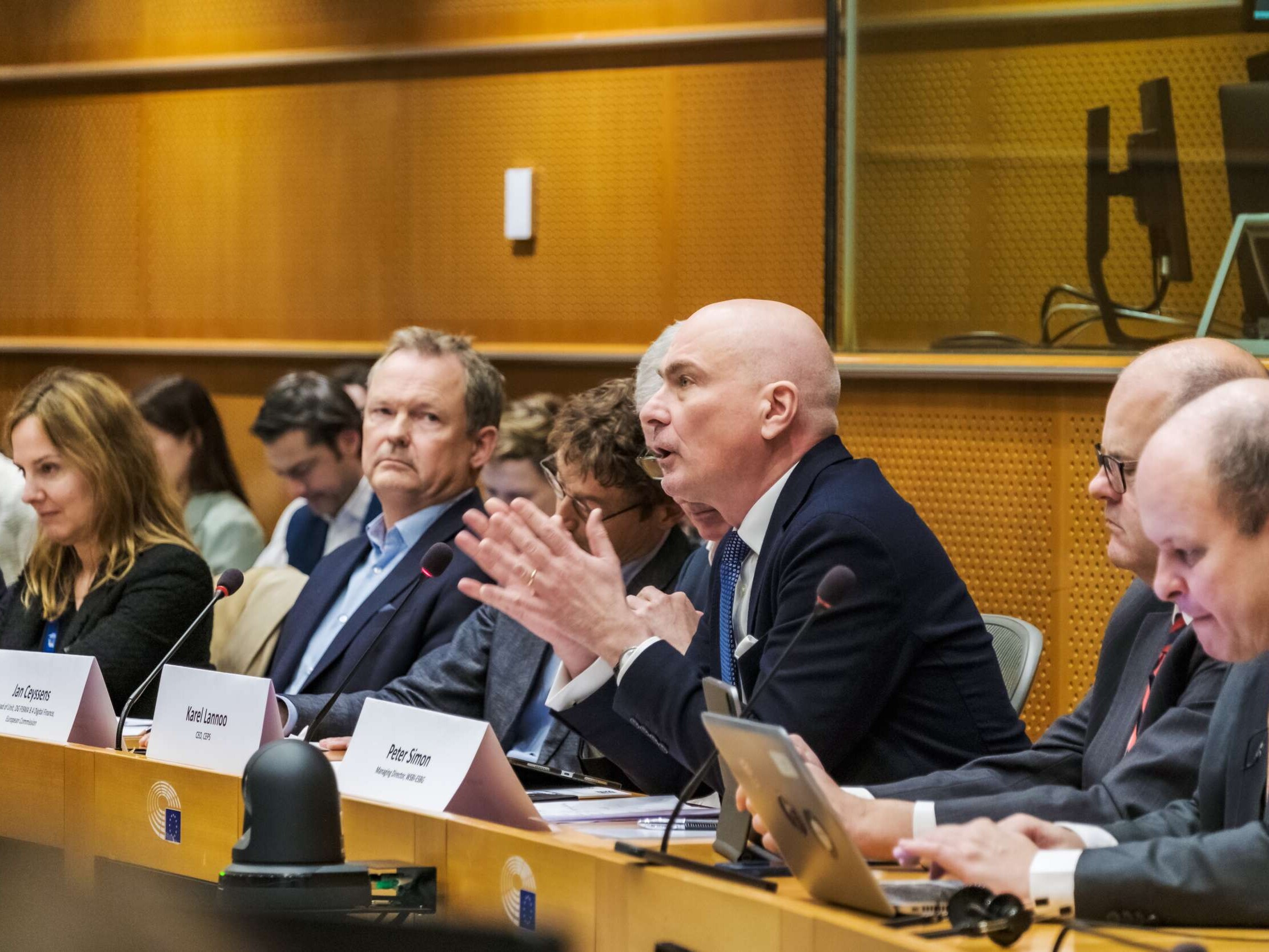World Savings and Retail Banking Institute
Helping savings and retail banks around the world to thrive
European Savings and Retail Banking Group
The voice of savings and retail banks at the heart of EU decision making
Driven by the three "R's"
With roots in 1924, WSBI-ESBG members enjoy a long history of socially responsible banking around the world. Although organizational structures vary from country to country, they each share certain values in their business models, embedded within the three “R”s.

Social responsibility is a core value of our members, towards their clients, employees, communities and the environment. Unlike Wall Street players, WSBI members are Main Street players.

Retail
Actively providing financial services for people – individual consumers and their households – as well as for micro-, small- and medium-sized enterprises (MSMEs) and local authorities.

Regional
Deploy broad distribution networks rooted within the communities they serve, including local and regional outreach in both urban and rural areas. Savings mobilized locally support the local economy. Members offer both digital solutions but they also keep the human touch through extensive branch networks.

Responsible
Social responsibility is a core value of our members, towards their clients, employees, communities and the environment. Unlike Wall Street players, WSBI members are Main Street players, serving all segments of population. Savings and retail banks follow a balanced approach for financial sustainability and a return to society. Profits make a sustainable bank; profit maximization should not be the ultimate goal. ESBG member banks rather give back part of locally made profits by reinvesting in the communities they serve, such as via philanthropic projects and foundation work.
Together WSBI and ESBG...

WSBI ESBG
WSBI ESBG Charter for Responsible and Sustainable Business
A signatory of the United Nations Global Compact since 2006, WSBI-ESBG follows the 10 Principles within it. These principles describe fully social and environmental responsibility commitments to follow. WSBI-ESBG is supportive of the Sustainable Development Goals, or SDGs, which range from ending world poverty to fighting climate change by 2030.

69
COUNTRIES

93
MEMBERS

1.4
BILION CUSTOMERS

6400+
SAVINGS AND RETAIL BANKS
19/04/2024
ESBG provides feedback on EBA public consultation on RTS on Prudent Valuation
The European Savings and Retail Banking Group (ESBG) recently submitted its response to the latest European Banking Authority (EBA)
16/04/2024
European Banking Authority (EBA) on ESG risk management
The European Savings and Retail Banking Group (ESBG) submitted its response to the consultation launched by the European Banking Authority (EBA). ESBG insists on the need for consitency with CSRD and CSDDD, the addressees of this guideline should also
21/03/2024
Study Visits on Postal Transformation hosted By Tanzania Commercial Bank
In line with WSBI’ s ongoing commitment to addressing the primary concerns of its African sub-working groups—Financial Inclusion, Digitalization, and Postal Transformatio
19/03/2024
The CSDDD dilemma or how to choose between Kant and Machiavelli?
“The European Union is currently facing a Machiavellian moment in History” according to Thomas Gomart, the director of the French Institute of Foreign Affairs (IFRI)[1]. Indeed, the European Union is being challenged
14/03/2024
ESBG advocates for increased clarity and streamlining of supervisory reporting requirements
On 14 March, ESBG submitted its response to the European Banking Authority (EBA) consultation on ITS amending Commission Implementation Regulation (EU) 2021/451 regarding supervisory reporting
14/03/2024
WSBI-ESBG advocates for robust implementation of the BCBS Pillar 3 framework for climate-related financial risks
On 14 March, WSBI-ESBG submitted its response to the Basel Committee on Banking Supervision (BCBS) consultation on its Pillar 3 disclosure framework for climate-related financial risks
08/03/2024
Managing Director of WSBI-ESBG Addresses European Parliament Event on Key Banking Sector Concerns Over a Digital Euro
On 7 March, WSBI-ESBG’s Managing Director, Mr. Peter Simon, participated in a panel on the digital euro jointly hosted by MEP Jonas
06/03/2024
ESBG stresses the need for consistency and clarity in its Response to the SFDR Review Consultation
ESBG submitted its response to the European Commission’s consultation on the SFDR review, aiming to enhance transparency in sustainability-related disclosures within the financial services sector
09/02/2024
ESBG’s response to the Commission’s consultation on the GDPR
The primary EU legislation ensuring the fundamental right to data protection is the General Data Protection Regulation
16/04/2024
European Banking Authority (EBA) on ESG risk management
The European Savings and Retail Banking Group (ESBG) submitted its response to the consultation…
02/04/2024
Enhancing Transparency in Bank Disclosures: ESBG delivers comprehensive response to the EBA’s Pillar 3 data hub consultation
On 14 December 2023, the European Banking Authority (EBA) published a discussion paper on the…
28/03/2024
IASB Exposure Draft (ED) on Financial Instruments with Characteristics of Equity
On 29 November 2023, the International Accounting Standards Board (IASB) proposed amendments in an…
20/03/2024
ESBG’s response to the EFRAG Comment Letter on Financial Instruments with Characteristics of Equity
On 29 November 2023, the International Accounting Standards Board (IASB) proposed amendments in an…
14/03/2024
ESBG advocates for increased clarity and streamlining of supervisory reporting requirements
On 14 March, ESBG submitted its response to the European Banking Authority (EBA) consultation on…
14/03/2024
WSBI-ESBG advocates for robust implementation of the BCBS Pillar 3 framework for climate-related financial risks
On 14 March, WSBI-ESBG submitted its response to the Basel Committee on Banking Supervision (BCBS)…
06/03/2024
ESBG stresses the need for consistency and clarity in its Response to the SFDR Review Consultation
ESBG submitted its response to the European Commission’s consultation on the SFDR review, aiming to…
28/02/2024
ESBG response to the EBA’s consultation on Guidelines on preventing the abuse of funds and certain crypto-assets transfers for ML/TF
The guidelines on the “travel rule” delineate the actions that Payment Service Providers (PSPs),…
22/02/2024
ESBG responds to the SRB consultation on the future MREL policy
The European Savings and Retail Banking Group (ESBG) submitted its response to the consultation…
09/02/2024
ESBG’s response to the Commission’s consultation on the GDPR
The primary EU legislation ensuring the fundamental right to data protection is the General Data…















































